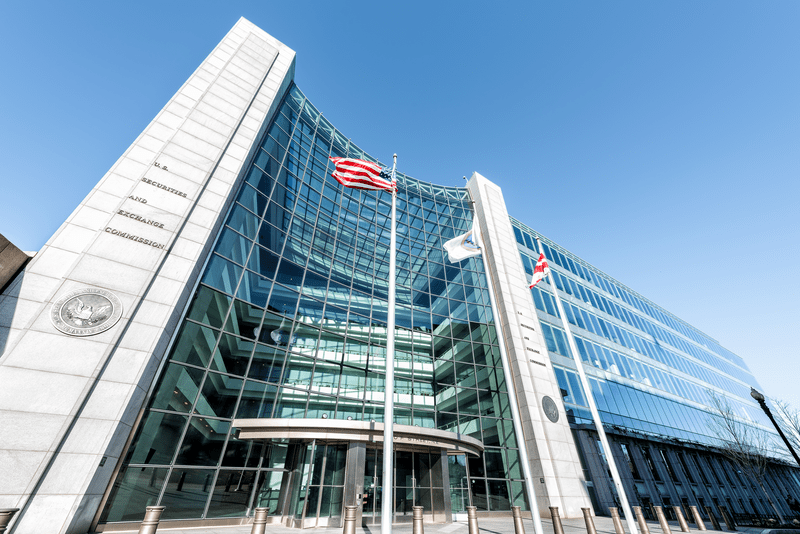17 December, 2024 by Harriet Agnew in London and Brooke Masters in New York
Britain’s national airline might have been expected to choose a UK-based fund manager to look after £21.5bn of pension assets. But in 2021, British Airways turned to New-York based BlackRock to run the money.
It was not the only one. BAE Systems, a defence contractor, followed suit by giving Goldman Sachs its £23bn mandate. This year, Shell asked BlackRock to manage €26bn of its pension assets.
The recent US domination of so-called outsourced chief investment officer (OCIO) services is a particularly visible sign of a much broader shift in global money management. Very large US groups are building ever larger beachheads in the UK and Europe — gathering assets, squeezing fees and shaking up the market.
The Americans are profiting as European investors shift money into low-cost tracking funds and exchange traded funds and unlisted alternatives, including private equity, private credit and infrastructure.
Buoyed by rising fee income from vibrant US securities markets, the very largest US asset managers and the asset management arms of Wall Street banks such as JPMorgan Chase and Goldman Sachs outcompete their European and British rivals in part because they can spread technology and compliance costs across a larger asset base.
“Competition for the largest mandates in the UK, Europe and the Middle East is increasingly between American firms,” says Fadi Abuali, co-chief executive of Goldman Sachs Asset Management International (GSAM). “We have scale, capacity to grow and we’re resilient.”
As the world’s largest pension funds and endowments have started consolidating their business with fewer managers, the US groups’ size and diverse product offerings have given them an edge.
“Running an asset manager is becoming more and more expensive, so you need a big-scale platform that is managed very efficiently,” says Rachel Lord, head of BlackRock’s international business. “If you have a platform that can offer a lot of different things across active, index, technology and private markets, you can win.”
Over the past decade, assets under management by US groups in the UK and Europe more than doubled from $2.1tn in 2014 to $4.5tn as of the end of September, according to ISS Market Intelligence. In addition to substantially outpacing European rivals, the Americans are making further inroads in areas where they are globally dominant. These include UK tracker funds, where they now manage 59 per cent of all assets, and in the fast-growing active ETF sector where they control three-quarters of the market.
Many UK asset managers are also on the wrong side of long-term structural trends, says Jon Godsall, co-lead of McKinsey’s global wealth and asset management practice. Actively-managed funds investing in domestic equities — historically their bread and butter — are in decline, and mid-sized money management firms around the world are struggling.
Godsall adds that what appears to be “a reticence to adapt in the face of overwhelming evidence of the need to adapt” has been a far bigger factor in their decline than fears about the City of London’s standing in international capital markets, or the UK’s decision to leave the EU.
“When I talk to American managers, they have no problem with the City of London or Brexit — it’s going very well for them in the UK.”
The pending return of Donald Trump to the White House, along with Republican control of Congress and a conservative-leaning Supreme Court, is propelling US momentum further.
Shares in US banks, alternative investment groups and some listed asset managers like BlackRock have soared on the prospect of deregulation, tax cuts and a boom in dealmaking. The industry harbours hopes that the Trump administration will make it easier to sell alternative investments including private equity, credit and cryptocurrencies to individual investors — all of which will increase the size, power and confidence of US asset managers.
“I’ll whisper it because it’s embarrassing, but Trump’s return is actually really good for business,” says a top asset management executive at a US firm. “We’re energised, we’re winning business, we feel good. Clients feel that.”
By contrast, the UK’s listed asset managers look beleaguered. Schroders and Abrdn have both appointed new bosses to try to boost flagging share prices and cut costs. In continental Europe, asset managers are increasingly trying to pull off big mergers to gain scale in the face of the Americans.
“[Clients] don’t want to talk to losers”, says the US executive “and they certainly don’t want to give their money to someone who may not be here in 10 years.”
The march of US asset managers into the UK and Europe echoes a similar phenomenon that played out decades earlier in stock trading and investment banking.
Margaret Thatcher’s “Big Bang” deregulation of the UK’s financial markets in 1986 stripped away the demarcation between banking, advising corporate clients and share trading. Over the following two decades, venerable City institutions such as Smith New Court, Barclays de Zoete Wedd and Cazenove were swallowed up by bigger US rivals and their European imitators such as Credit Suisse, Deutsche Bank and UBS.
That paved the way for the American full-service investment banking model — where everything from sales and trading to research and mergers and acquisitions advice are brought under one roof — to conquer Europe. US institutions now dominate investment banking and have been stealing market share from European rivals for over a decade.
Money management is much less concentrated than investment banking, and some mid-sized US groups are facing similar structural headwinds to their peers across the Atlantic. But the best positioned US asset managers are now powering past European rivals, fuelled by robust growth at home and a strong dollar, which has supported international expansion.
Total assets under management in North America grew 16 per cent year on year in 2023, versus 8 per cent in Europe and 2 per cent in the UK, according to consultants BCG.
“This scale advantage allows US firms to invest more substantially in absolute terms in technology and operations, enhancing their competitiveness and allowing them to outcompete local European players,” says Dean Frankle, managing director and partner at BCG in London.
| Groups | Date | Details |
|---|---|---|
| UBS/Credit Suisse | March 2023 | The state-sponsored rescue of Credit Suisse by its Zurich rival created an asset management business with $5.7tn under management |
| Axa/BNP Paribas | Aug 2024 | Insurer Axa announces exclusive talks to sell its €800bn asset management business to the French bank for €5.1bn. Combined business will have €1.5tn under management |
| Axa/Amundi/Natixis | Various times | Talks about combining Axa Investment Managers with either Natixis or Amundi failed to reach a conclusion |
| Natixis/Generali | Ongoing | Groupe BPCE, parent company of Natixis, is in talks with Italian insurer Generali to create a new asset management joint venture |
| Banco BPM Spa/Anima Holding | Dec 2024 | Italian bank has bid to take control of asset manager Anima, where it is already the largest shareholder |
| Amundi/Allianz | 2023/24 | Europe’s largest pure-play asset manager had been in talks with German insurer Allianz about acquiring its fund management business. The discussions were paused earlier this month |
| DWS | Various times | Has talked to both Allianz and Dutch insurer NN Group about acquisitions. Lost out to Goldman Sachs for NN Group’s investment management unit in 2021 |
“Slower growth and market fragmentation have presented challenges for European players, who face increased pressure to consolidate and compete.”
A signature deal of the post-Big Bang era was Schroders’ sale of its investment banking division to Citigroup for £1.35bn in 2000. One of the last great dynastic British finance houses, Schroders was also one of a few homegrown investment banks that could compete for big-ticket M&A deals. But its board opted to double down on asset management, which uses less capital and generates reliable fee income.
That decision coincided with the high-water mark of its clients’ allocations to equities. In 1999, UK pension funds invested three-quarters of their assets in equities, with around half going into UK shares and a quarter into non-UK, according to data compiled by New Financial.
A series of changes to tax and accounting rules led pension schemes to shift assets out of equities and into government bonds. By 2021, the average UK pension fund had cut its equity allocation to 27 per cent — with just 6 per cent in UK shares, sucking capital out of the domestic markets and depriving asset managers of their core client base.
That long-term trend was followed by the UK’s departure from the EU. “Brexit made the UK asset managers not European,” says a second top US executive. “Therefore they didn’t have a backyard of significance and had no real competitive advantage against the American firms.”
London will remain the asset management centre for Europe, but the winners will increasingly be global firms, mostly the Americans
These UK-specific challenges were compounded by global trends, such as the shift from active to passive investing and the associated downward pressure on fees. As the number of quoted companies steadily fell, clients wanted more access to private markets, while large institutional investors tended to want closer relationships with fewer asset managers.
“Most UK players were left with neither global scale, captive distribution nor fast-growing product mixes,” says Huw van Steenis, partner and vice-chair at management consultancy Oliver Wyman, adding that merging with each other is unlikely to rescue them.
The second US executive describes the independent UK asset management industry as “largely irrelevant” and “something circling the drain”.
“London will remain the asset management centre for Europe, but the winners will increasingly be global firms, mostly the Americans.”
Ironically, the current US success was part-made in Britain. In June 2009, Barclays sold its California-based index fund business to BlackRock. The UK bank netted $13.5bn from the disposal — but BlackRock got the ETF and tracker fund platform that would power its global success.
At around the same time, Vanguard arrived in the UK and began shaking up the retail investment market with the lowest-cost tracking funds that Europe had ever seen.
The march of US managers was also aided by regulatory changes, such as the 2013 UK ban on commissions to advisers for the sales of financial products.
“It set the stage for us to have a low-cost offer in the market,” says Jon Cleborne, Vanguard’s head of Europe, of what was termed the retail distribution review. “Advisers really transitioned from having a commission-based product model to a fee-based planning model,” benefiting low-cost providers such as Vanguard.
The biggest US managers also benefited from simply being large. “Scale is increasingly important [for] supporting the technology spend, the brand spend, and supporting the regulatory, legal and compliance framework that you need,” says David Hunt, chief executive of New Jersey-based PGIM, which manages $1.3tn. “If you don’t have a lot of assets it gets hard to stay in the competitive war.”
“You need to be able to invest through the cycle, through periods when profits are down and markets are tough,” says Patrick Thomson, chief executive of JPMorgan Asset Management in Europe, the Middle East and Africa. “To be able to do that you need to have a very diversified business.”
The largest players can also provide more services, from high-fee private markets products to risk management and technology services. BlackRock’s institutional money management software Aladdin, for instance, raked in just shy of $1.5bn in revenues last year.
“The things that make BlackRock and [Goldman Sachs] formidable competitors are the things they offer that are not just asset management,” says Stefan Hoops, chief executive of Germany’s DWS, referring to Aladdin and OCIO.
The big US players also have local sales forces who work with European and UK financial advisers to explain the plethora of new investment products.
“Go back 10 or 20 years ago, the complexity of the product and the amount of choice was significantly less,” says Caroline Randall, a UK-based member of the management committee at Los Angeles-based Capital Group. “You have to deliver value beyond investment, and we can offer to help our clients with that.”
Brexit also allowed some US groups, most notably BlackRock, to steal a march because they had already started building up domestic sales forces in major continental markets as well as the UK, while their rivals relied on EU passporting rules.
The momentum of the big US groups is one of the factors forcing European banks, insurers and independent rivals to evaluate their commitment to asset management.
Like Schroders did in 2000, they are weighing up whether to double down, partner with others in pursuit of scale, focus on a specialism where barriers to entry are higher, or exit the sector.
“You need scale, you can’t get to $1tn [of assets under management] and feel that things are good now,” says a banker who works on deals in the sector.
“The squeeze is no longer just felt by the mid-sized European players,” says Vincent Bounie, senior managing director at Fenchurch Advisory Partners. “Firms need capital . . . to support product development, gain efficiencies and reposition strategically towards areas of growth.”
Thomas Buberl, chief executive of French insurance group Axa, told the Financial Times after agreeing a deal to combine its asset management business with that of BNP Paribas, that “it is the only way to compete in a heavily consolidated fund management sector that is increasingly dominated by big global firms.”
Several other insurers are in talks to combine their asset management units with those of others, though such deals are difficult to execute. The FT revealed recently that Germany’s Allianz and French asset manager Amundi had paused long-running talks over a potential transaction because of disagreements over how best to structure it.
In the UK, Legal & General’s new chief executive António Simões has combined its substantial index tracking funds business with its private markets offering to create a single asset management division with £1.2tn in assets. “The barbell is where the asset management industry has gone: passive and private markets,” says Simões, adding that he is “considering bolt-on acquisitions, particularly in private markets and the US”.
The strength of the US groups makes them players in European consolidation as well. Goldman Sachs significantly expanded its European presence with its €1.6bn purchase in 2021 of Dutch insurer NN Group’s investment management arm — and beating Germany’s DWS in the process.
Even as the European firms bulk up, their US rivals continue to steam ahead. Seven of the 10 fastest-growing fund groups in Europe this year are American, according to Morningstar. In the third quarter alone, BlackRock recorded $221bn of global net inflows — more than the entire European investment funds industry put together.
The US executive warns that scale alone is not a panacea. “The problem with most mergers in our industry is a failure to see that the compelling rationale must be centred around the client,” he says, adding that merging on the grounds that “we need to be big and pan-European to compete with the Americans” is not enough.
© The Financial Times Limited 2024. All Rights Reserved.
FT and Financial Times are trademarks of the Financial Times
Ltd. Not to be redistributed, copied or modified in any way.
















